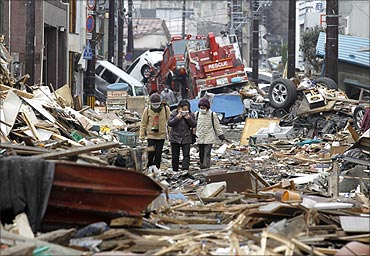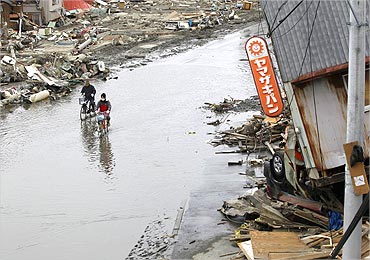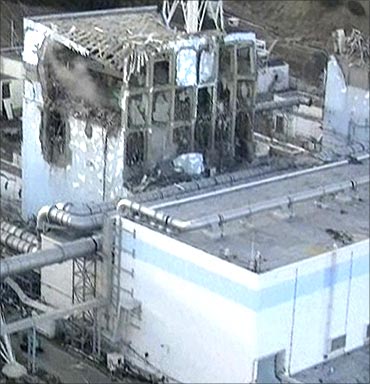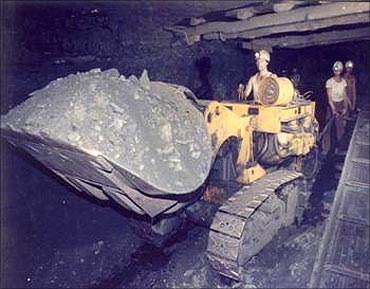 | « Back to article | Print this article |
Japan disaster: A wake-up call for other nations
Many corporates have disaster recovery and business continuity plans in place. So do many nations. However the Japan disasters will stress-test the global economy's disaster recovery mechanisms.
A triple whammy of earthquake, tsunami and nuclear disaster hitting the world's third-largest economy is bad enough. It doesn't help that there's a civil war in Libya. Looking beyond the human dimensions of the tragedy is tough with thousands dead and lakhs homeless. But a realignment of the global energy mix is now almost guaranteed.Click NEXT to read on
Japan disaster: A wake-up call for other nations
There has already been a surge of anti-nuclear opinion. Nuclear projects in India (and elsewhere) may be shelved, calling into question the economic logic of the US-India nuclear agreement.
The concerns are genuine. It's natural for crude-poor nations like India to develop nuclear capacity as part of the energy mix. It is also natural to wonder how large the butcher's bill would be, if a disaster like this hits an Indian nuclear plant.
Nuclear accidents are rarer than accidents in conventional plants. But the damage potential is exponentially higher. And nuclear accidents have happened in Canada, US, UK, Russia and Japan.
Click NEXT to read on
Japan disaster: A wake-up call for other nations
India experiences quakes, floods and tsunamis, quite apart from possessing relatively low safety standards.
Fukushima could cause widespread NIMBY ("not in my backyard") attitudes with politicians and citizens opposing any plans to locate plants or landfills in their vicinity. It is NIMBY that has forced the US nuclear industry to seek overseas markets.
Click NEXT to read on
Japan disaster: A wake-up call for other nations
They are expensive and the environmental impacts are larger than generally realised. If you have a 3-5 year perspective, it may make sense to buy into anything available in the solar space.
In the short-run, the conventional Indian energy industry will focus on crude, gas and coal. All three fuels have problem areas. The supply scenario with gas is not too disturbing, given recent strikes.
Click NEXT to read on
Japan disaster: A wake-up call for other nations
Coal is increasingly sourced from Indonesia, Australia, Mozambique and so on. India has large coal reserves. But most domestic coal is low quality and the domestic mining industry is inefficient and government controlled. Privatising coal mines and exploration faces entrenched opposition.
Hence, it's easier for Indian companies to buy mines overseas. Persistent supply shortages plague Indian thermal plants, which need coal linkages and captive mines to be viable.
Click NEXT to read on
Japan disaster: A wake-up call for other nations
India imports over 70 per cent of its crude. Domestic production will rise, especially considering overseas equity oil. Demand is growing faster and imports could hit 80 per cent quite soon.
India sources crude from Saudi Arabia, Iran, Iraq, Kuwait, UAE and Yemen so removing Libya from the equation won't hurt supply. However, if Libyan production is not available, crude prices will spike.
Click NEXT to read on
Japan disaster: A wake-up call for other nations
The combination of civil society opposition to nuclear expansion and rising crude prices may force reviews of the current subsidy policy. That's good - India reforms only when in acute crisis.
The Nandan Nilekani Committee is tasked to find ways to subsidise kerosene, LPG and fertilisers by offering direct monetary support to lower income consumers. If this scheme takes off, under-recoveries will ease for PSU marketers.
Click NEXT to read on
Japan disaster: A wake-up call for other nations
ONGC and OIL may realise full value as producers of an expensive commodity.
One thing India has in its favour is surplus, rising refining capacity at competitive gross refining margins (GRM). If crude rises, India wins more export marketshare.
Value-added forex earnings from petro-products may balance off the cost of crude imports.
Japan disaster: A wake-up call for other nations
Telecom service providers collectively comprise the second-largest diesel consumption sector (after railways).
Given erratic grid power, they are forced to use auxiliary gensets to energise cell-towers.
Telecom majors are all looking at alternates - mainly solar. This is a big enough market to create economies of scale and drive innovation. So keep an eye on what they do.








